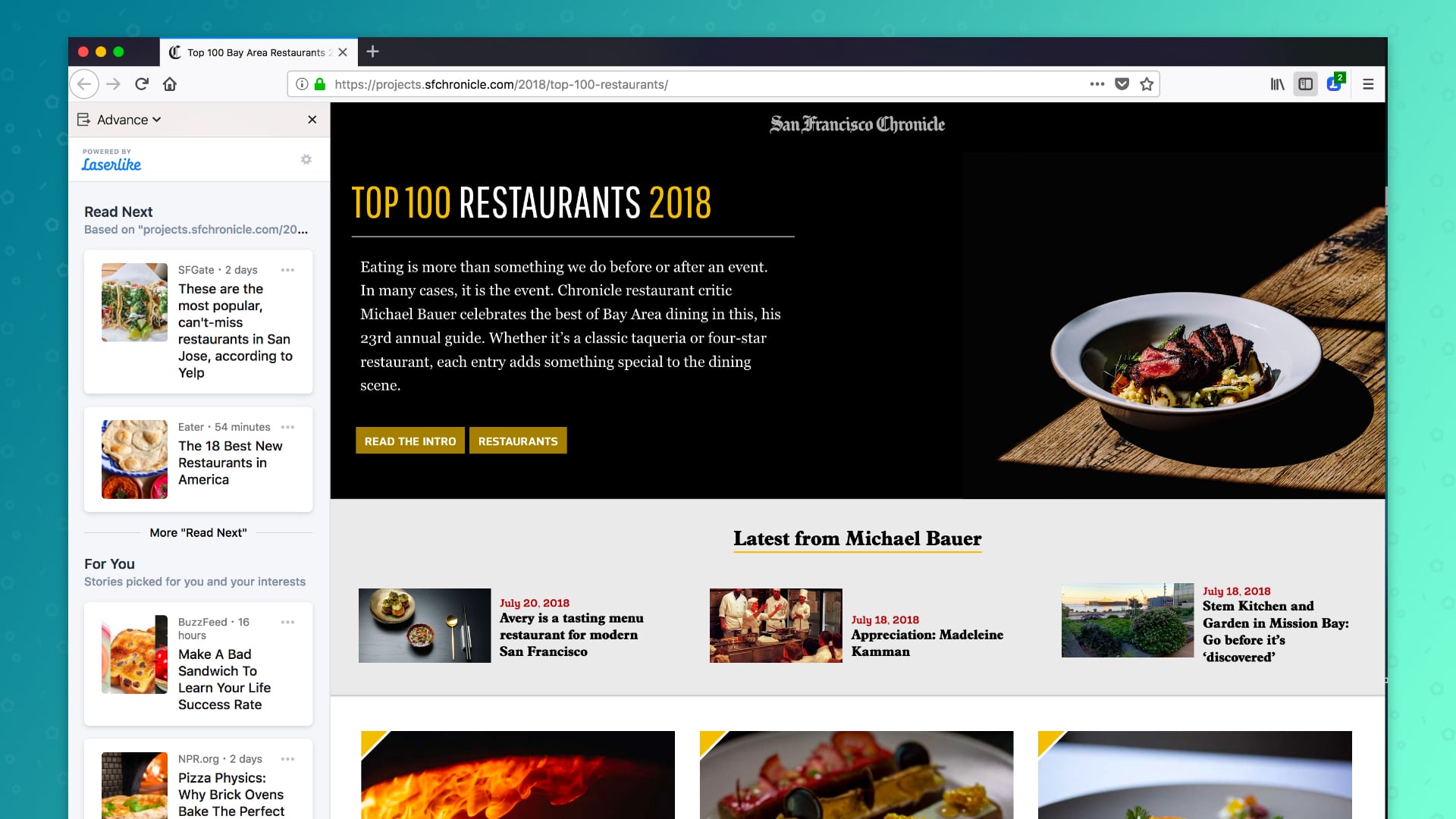 APPS
APPS
 APPS
APPS
 APPS
APPS
The Mozilla Foundation’s efforts to set Firefox apart from Google Chrome have moved into a new area: content recommendation.
The browser maker today introduced Advance, an experimental feature that uses machine learning to suggest new websites and online content for users to explore. It’s available as an extension downloadable through Test Pilot, the early adopter program Mozilla uses to pilot new capabilities before releasing them to Firefox.
Advance appears as a prominent sidebar in the browser window (pictured). The extension feeds the user’s browsing history to its machine learning models, which Mozilla sources from a search startup called Laserlike Inc., and surfaces relevant web content. Items are organized in a list that uses an image-centric format similar to Google News.
In a blog post, Mozilla explained that the idea is to help consumers uncover new content from around the web that they normally wouldn’t come across.
“The internet today is often like being on a guided tour bus in an unfamiliar city,” the company wrote. “You end up getting off at the same places that everyone else does. While it’s convenient and doesn’t require a lot of planning, sometimes you want to get a little off the beaten path. With Advance we’re taking you back to our Firefox roots and the experience that started everyone surfing the web.”
Firefox sees Advance having practical uses as well. If a user brings up an online reviews portal to find the highest-rated restaurants in their area, the extension could theoretically surface other websites with more information about each venue.
Advance might even create new monetization opportunities for Mozilla in the process. As part of an update it released in May, the browser maker started included promoted links in Firefox’s Pocket reading list feature. The image-rich format in which the Advance sidebar displays items may potentially lend itself to ads even better than Pocket.
Even without prompted content, Mozilla will have to walk a fine line with the extension given that it not only analyzes users’ browsing history but also sends it to an external machine learning provider. The organization said that Advance includes a set of privacy features to give users control over their data.
“At Mozilla, we believe browser history is sensitive information and we want people to clearly understand that Laserlike will receive their web browsing history before installing the experiment,” Mozilla said. “We have also included controls so that participants can pause the experiment, see what browser history Laserlike has about them, or request deletion of that information.”
Support our mission to keep content open and free by engaging with theCUBE community. Join theCUBE’s Alumni Trust Network, where technology leaders connect, share intelligence and create opportunities.
Founded by tech visionaries John Furrier and Dave Vellante, SiliconANGLE Media has built a dynamic ecosystem of industry-leading digital media brands that reach 15+ million elite tech professionals. Our new proprietary theCUBE AI Video Cloud is breaking ground in audience interaction, leveraging theCUBEai.com neural network to help technology companies make data-driven decisions and stay at the forefront of industry conversations.